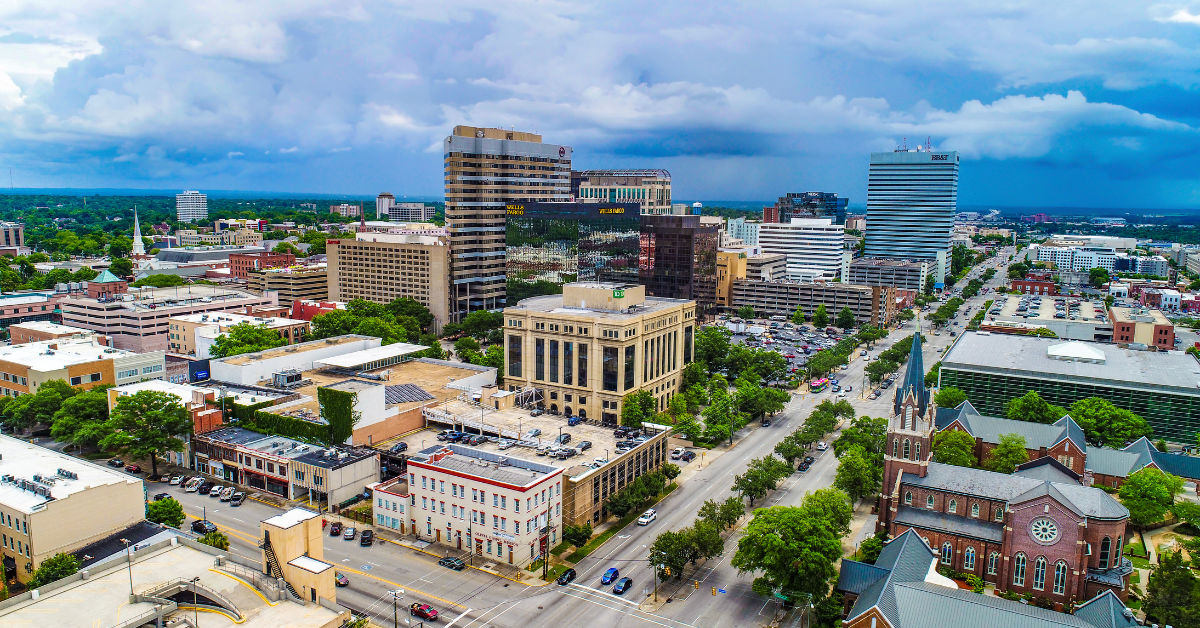South Carolina, located in the southeastern United States, has no official Kanji notation and is usually written in Katakana in Japan. This article explores why Kanji was never adopted, and how Japanese perceptions of South Carolina are shaped by history, culture, food, and sports.
Why South Carolina Has No Kanji Notation
South Carolina has no official Kanji notation. This is because there was never a practical or cultural need to create Kanji for U.S. state names.
During the Meiji and Taisho periods, many foreign country and city names were written with Kanji “ateji” (phonetic or semantic character substitutions). For example, “亜米利加” (America) and “倫敦” (London) were created to make foreign names visually understandable to Japanese readers. However, state names like South Carolina were not subject to such treatment, so the Katakana phonetic transcription became the standard.
In short, the difference lies in historical necessity and cultural exchange.
Basic Facts about South Carolina
| Item | Details |
|---|---|
| Location | Southeastern United States |
| Capital | Columbia |
| Major Cities | Charleston, Greenville |
| Area | About 82,933 square kilometers |
| Population | About 5.3 million |
| Features | Historic buildings, beach resorts, Southern cuisine |
The state’s appeal lies in its combination of coastal scenery and rich history.
Japanese Perceptions of South Carolina
Although South Carolina is not a familiar name for most Japanese people, certain impressions have taken hold.
- Southern Traditions
Known as a stage of the Civil War, it preserves plantation culture and historic architecture. - Nature and Resorts
Facing the Atlantic Ocean, it is home to Myrtle Beach, a famous resort destination. - Education
With universities such as the University of South Carolina and Clemson University, the state is recognized for academic research. - Music and Food Culture
Southern cuisine, along with blues and jazz, shape its cultural identity and offer visitors a unique experience.
Why Some Place Names Have Kanji
Some foreign place names, like “印度” (India) and “亜細亜” (Asia), are written in Kanji. These were created in newspapers and translations to make information easier to understand for Japanese readers.
U.S. state names, however, were not part of daily Japanese life, so there was no need to create Kanji. Thus, Katakana remained the standard. This difference reflects variations in historical contact and cultural necessity.
South Carolina and Sports
South Carolina is a state where college sports are deeply embedded in local culture. College football, in particular, is not just entertainment but a source of pride for communities.
The University of South Carolina’s “Gamecocks” and Clemson University’s “Tigers” are archrivals. Their matchup, known as the “Palmetto Bowl,” is one of the biggest annual sporting events in the state.
Baseball and basketball are also popular, and university competitions serve as stepping stones for aspiring professional athletes. Sports in South Carolina are more than games—they symbolize unity and identity for local communities.
Tourist Attractions in South Carolina
| Category | Main Spot | Feature |
|---|---|---|
| History | Charleston’s Old Town | Preserves buildings from the Civil War and colonial period |
| Nature | Myrtle Beach | A resort drawing tourists nationwide |
| Culture | Plantation Sites | Learn about slavery and Southern heritage |
Visiting South Carolina allows travelers to experience both history and leisure at once.
Food Culture of South Carolina
| Dish | Feature | Japanese Perception |
|---|---|---|
| Barbecue | Pork-based with distinctive sauces | Strongly associated with Southern identity |
| Seafood Dishes | Shrimp and crab prepared Southern-style | Compared with Japanese seafood |
| Grits | Cornmeal-based staple | Feels familiar, like rice porridge |
Through food, visitors gain firsthand access to Southern daily life.
Key Points to Understand South Carolina
| Perspective | Details |
|---|---|
| Notation | No Kanji, written in Katakana |
| History | Civil War stage, preserved old towns |
| Tourism | Combines nature and cultural attractions |
| Sports | College sports are central to local identity |
| Cuisine | Barbecue, seafood, and grits symbolize the South |
Conclusion
South Carolina has no official Kanji notation and is written in Katakana in Japan. While it may not be deeply familiar to Japanese people, it holds a wealth of attractions across history, culture, nature, food, and sports.
From exploring Civil War heritage, to relaxing at beach resorts, to experiencing the intensity of college sports, the state offers diverse ways to engage. South Carolina is not just a regional name but a symbolic representation of Southern U.S. culture, worth experiencing for a deeper understanding of America.






